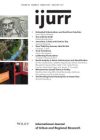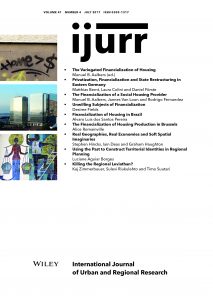Using a mix of survey data, results from a study on local planning politics and fieldwork, this article discusses the interplay of planning and welfare policies with global financial markets in the ‘making’ of social segregation in Halle-Neustadt, a borough in the German city of Halle (Saale). Here, different developments come together. First, Halle-Neustadt has experienced two waves of privatization, leading to a complete change of ownership structures, marked by the rise of financial investors. Second, welfare cuts have put increasing pressure on welfare recipients to live in the cheapest housing available. This has led to the emergence of a ‘Hartz IV business model’ based on low, but state-subsidized, rents. Third, new planning policies have led to a massive drop in house prices, thus facilitating the use of ‘leverage’ strategies for financial investors. We expand on an already developed debate, providing new insights about relations between planning, state restructuring and financialization in a German context. We demonstrate that a broad array of changes in national regulatory settings, policy change in different sectors and local particularities can all be crucial in enabling financialization. We conclude that research should place greater emphasis on the state in providing explanations and take differences in context more seriously.
Details
Written by:
Matthias Bernt, Laura Colini & Daniel Förste
Digital Object Identifier (DOI)
10.1111/1468-2427.12521
About DOI

